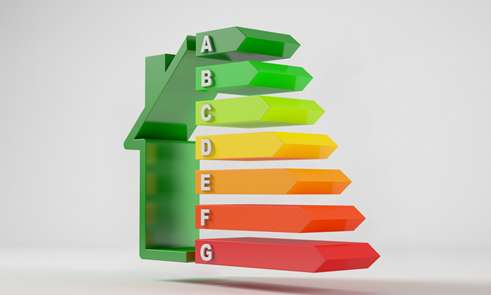Why You Should Consider a Home Energy Audit
 In today’s environmentally conscious world, finding ways to save on energy costs has become increasingly important. One effective method to achieve both goals is by conducting a home energy audit. A home energy audit is a comprehensive assessment of your home’s energy efficiency and helps identify areas where energy is being wasted.
In today’s environmentally conscious world, finding ways to save on energy costs has become increasingly important. One effective method to achieve both goals is by conducting a home energy audit. A home energy audit is a comprehensive assessment of your home’s energy efficiency and helps identify areas where energy is being wasted.
Identify Energy Inefficiencies: A home energy audit provides a detailed analysis of your home’s energy consumption patterns. Certified auditors use specialized tools and techniques to evaluate various aspects of your property, including insulation, HVAC systems, appliances, lighting, and more.
Save on Energy Costs: Identifying energy inefficiencies through a home energy audit allows you to take targeted actions to reduce your energy consumption.
Enhance Comfort and Indoor Air Quality: A home energy audit not only helps you save on energy costs but also improves the overall comfort and indoor air quality of your living space.
Contribute to Environmental Conservation: Reducing energy consumption through a home energy audit has a positive impact on the environment. By minimizing energy waste, you can help lower greenhouse gas emissions associated with electricity generation.
Access to Incentives and Rebates: Many utility companies, government agencies, and environmental organizations offer incentives and rebates for energy-saving upgrades. By conducting a home energy audit, you gain valuable information to take advantage of these programs.
A home energy audit provides valuable insights into your home’s energy performance, allowing you to identify areas for improvement and make informed decisions to enhance energy efficiency. By conducting a comprehensive assessment, you can save on energy costs, improve comfort and indoor air quality, contribute to environmental conservation, and access incentives and rebates.
It’s important to prioritize the recommendations based on your budget and potential energy savings. You can also reach out to a professional contractor or energy auditor for assistance in implementing the recommended upgrades. By addressing the issues identified during your home energy audit, you can improve the energy efficiency of your home and save money on utility bills. Consider a home energy audit today and take the first step toward a greener, more energy-conscious lifestyle.

 Mortgage loans are an essential aspect of financing the purchase of a property. Among the various types of mortgages available, one option that may be advantageous for both buyers and sellers is an assumable mortgage loan.
Mortgage loans are an essential aspect of financing the purchase of a property. Among the various types of mortgages available, one option that may be advantageous for both buyers and sellers is an assumable mortgage loan. Last week’s economic reporting included readings on month-to-month and year-over-year inflation and consumer sentiment. Weekly readings on mortgage rates and jobless claims were also published.
Last week’s economic reporting included readings on month-to-month and year-over-year inflation and consumer sentiment. Weekly readings on mortgage rates and jobless claims were also published.